YOU ARE LEARNING:
The Formula for Acceleration

The Formula for Acceleration
You find acceleration by dividing the change in velocity by time.
An example
How fast is this cyclist going?


10 seconds later, how fast is the cyclist going?

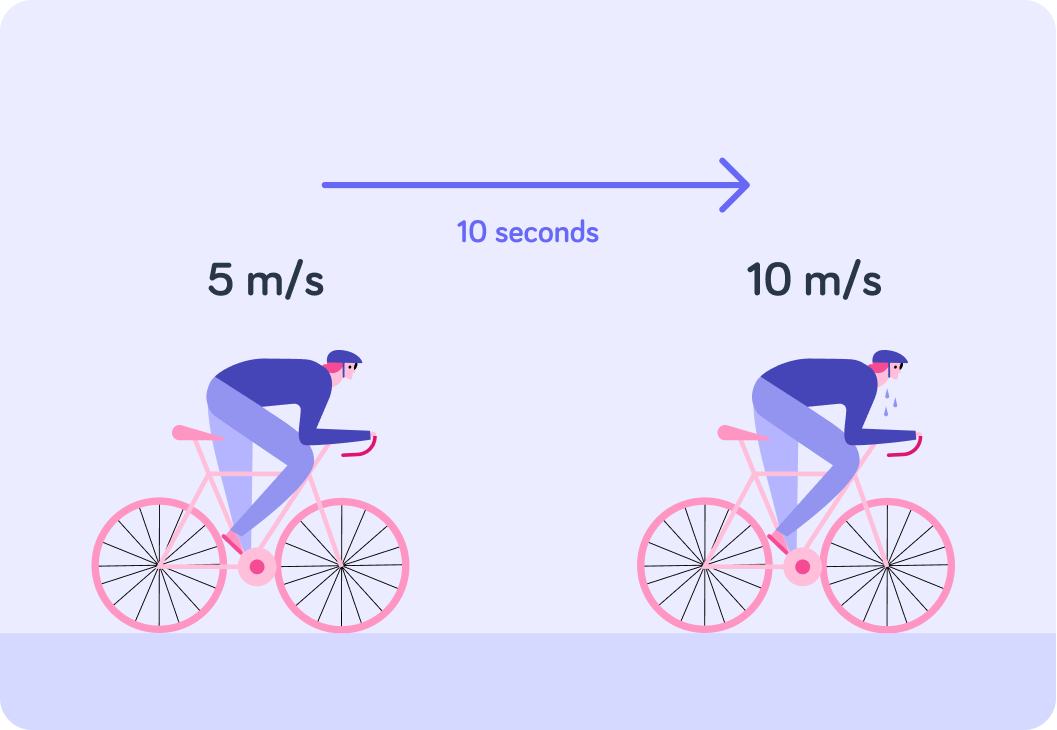
How much faster is 10 m/s than 5 m/s?


So over the course of 10 s, this cyclist got 5 m/s faster. How many m/s did the cyclist get faster every second?


So every second, this cyclist accelerated by 0.5 m/s
You say that his acceleration was 0.5 m/s2
The unit m/s2 will be explained a little later in this lesson.
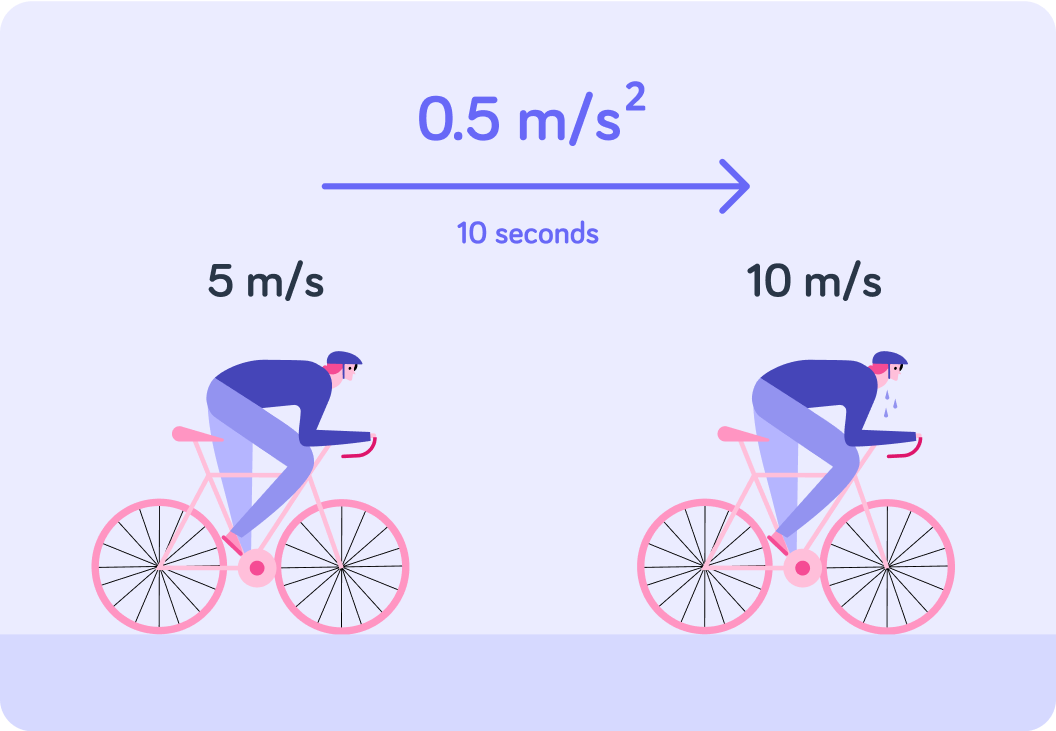
You worked out the cyclist's acceleration like this 10 s10 m/s−5 m/s=0.5 m/s2. So what is the correct formula for acceleration?

The unit m/s2 explained
This is the formula for acceleration. What is the unit you have used for speed in this lesson?

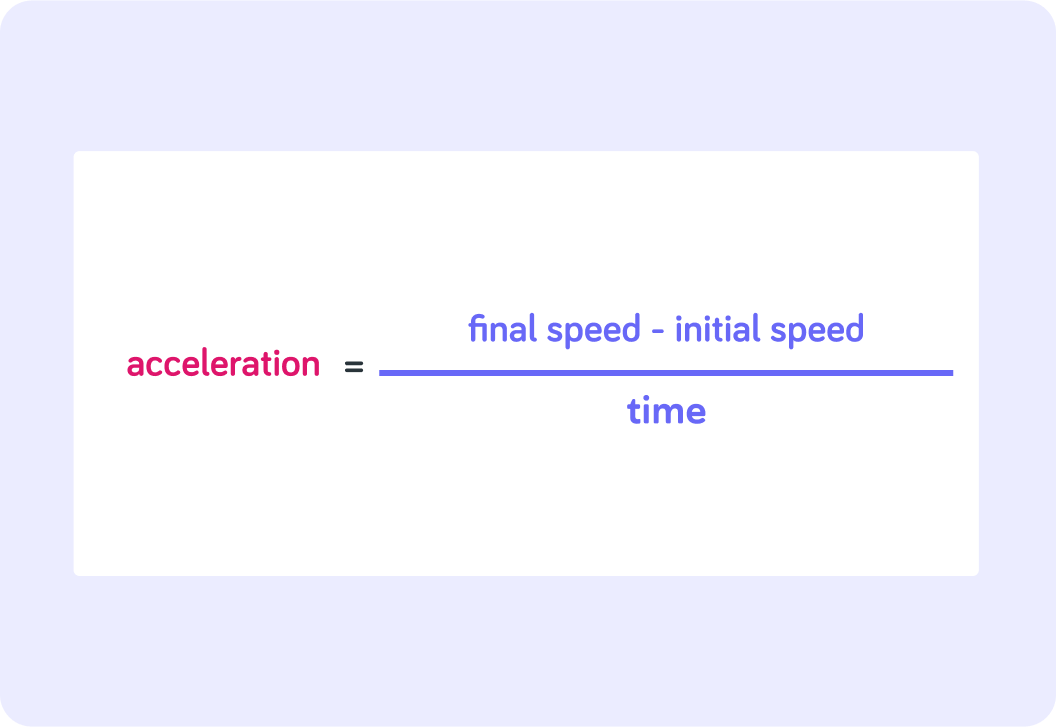
What is the unit you have used for time in this lesson?


The image now also shows the formula in units
It shows that acceleration is a change in meters per second per second, because m/s is divided by s
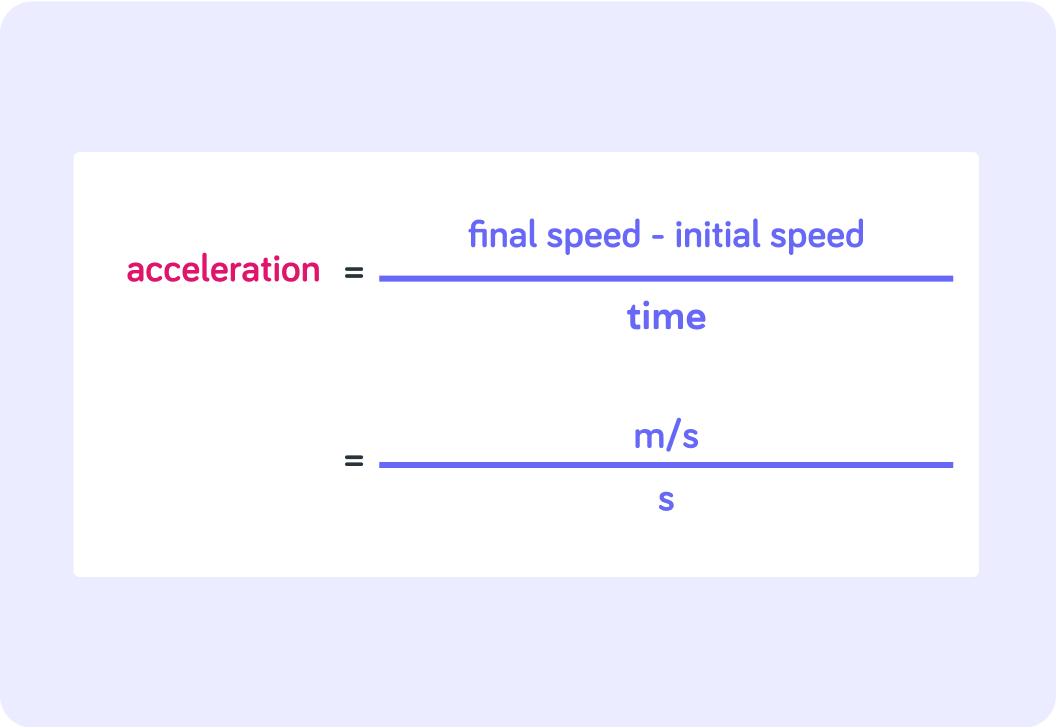
sm/s is the same as s×sm. How can you also write s×s, using powers?


sm/s is the same as s×sm which is the same as s2m
That is why the unit for acceleration is m/s2 and not simply m/s (which is the unit for speed!).
Acceleration is a change in metres per second per second.
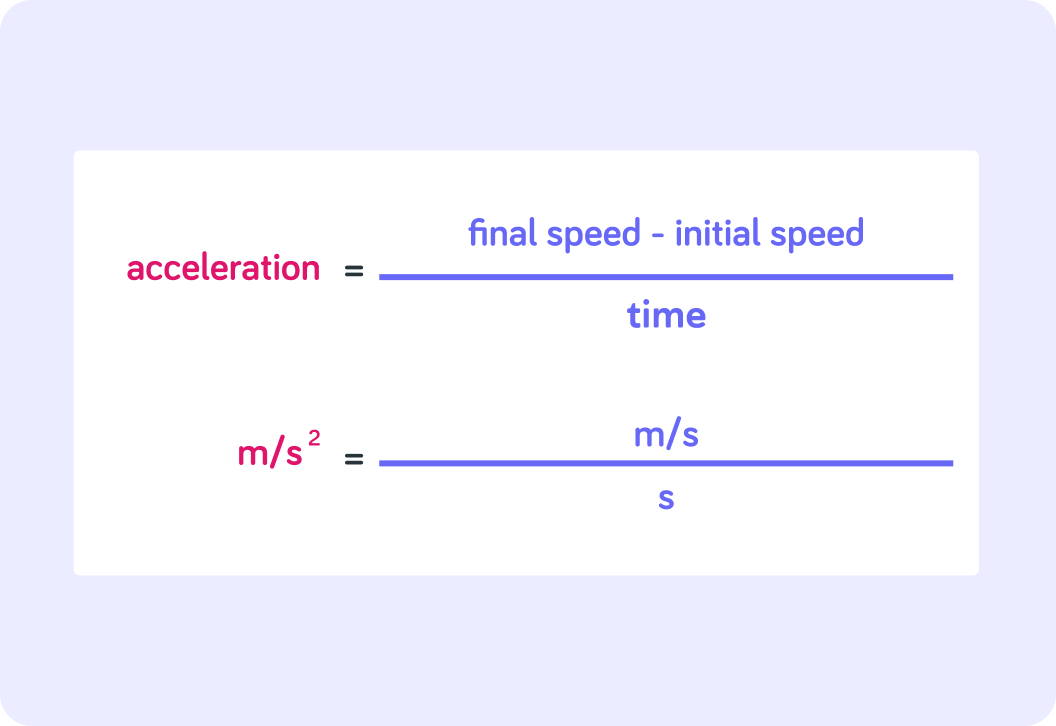
What is this woman's acceleration in m/s2?

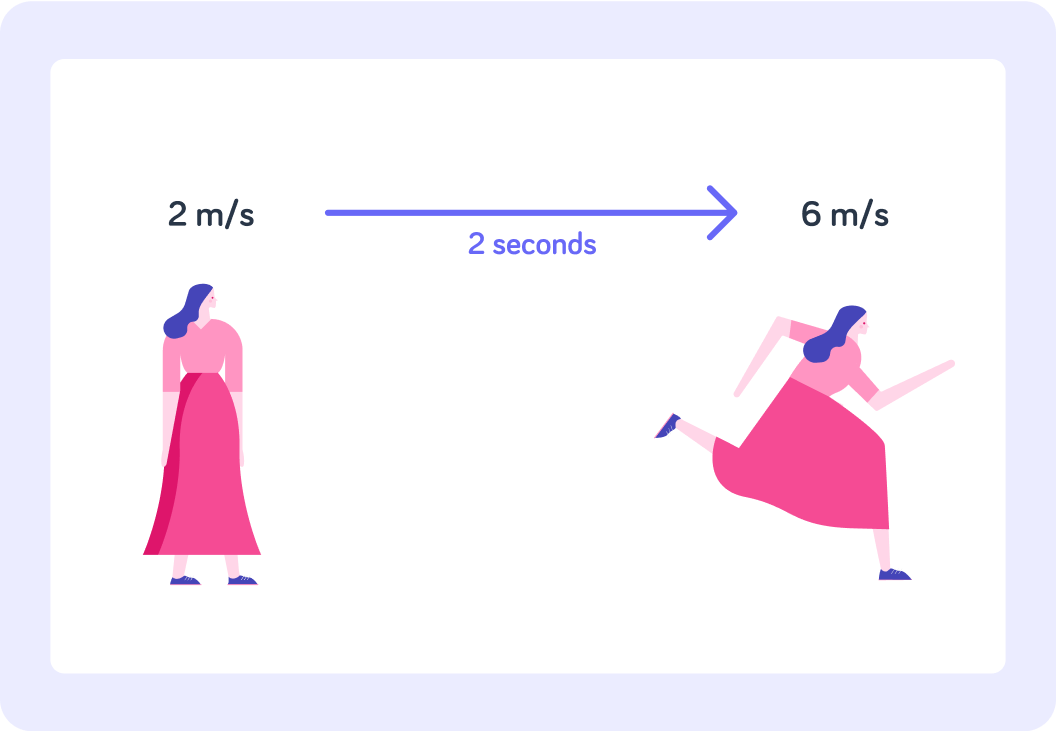
What is this cyclist's acceleration in m/s2?

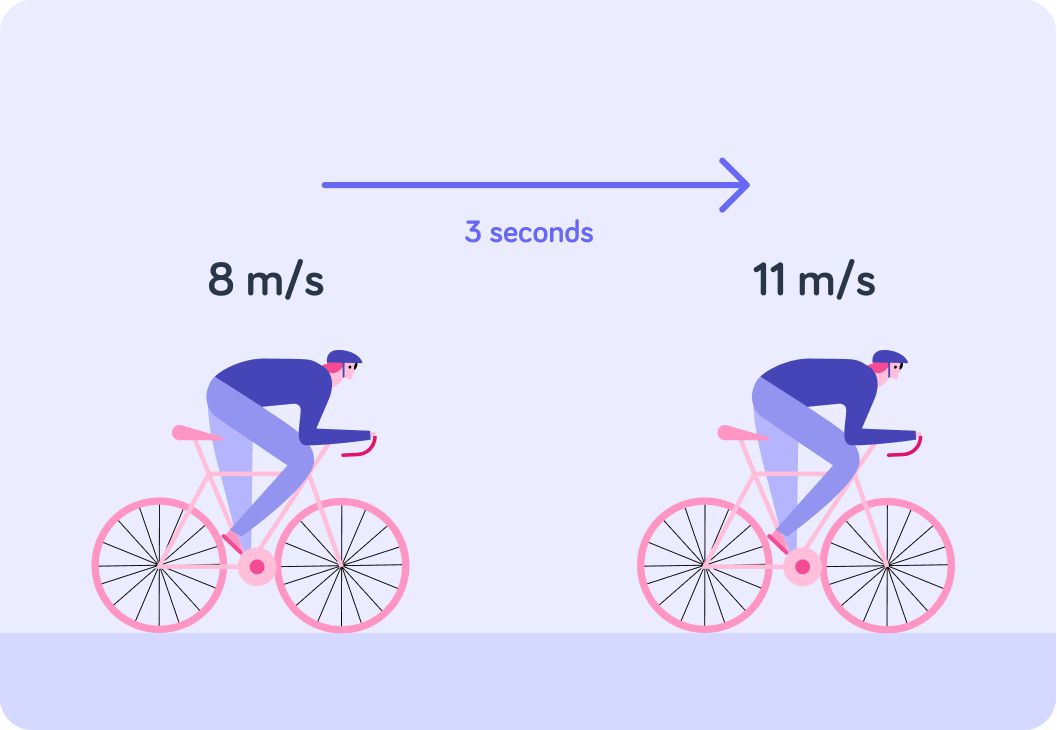
Careful now!
What is this cyclist's initial speed?

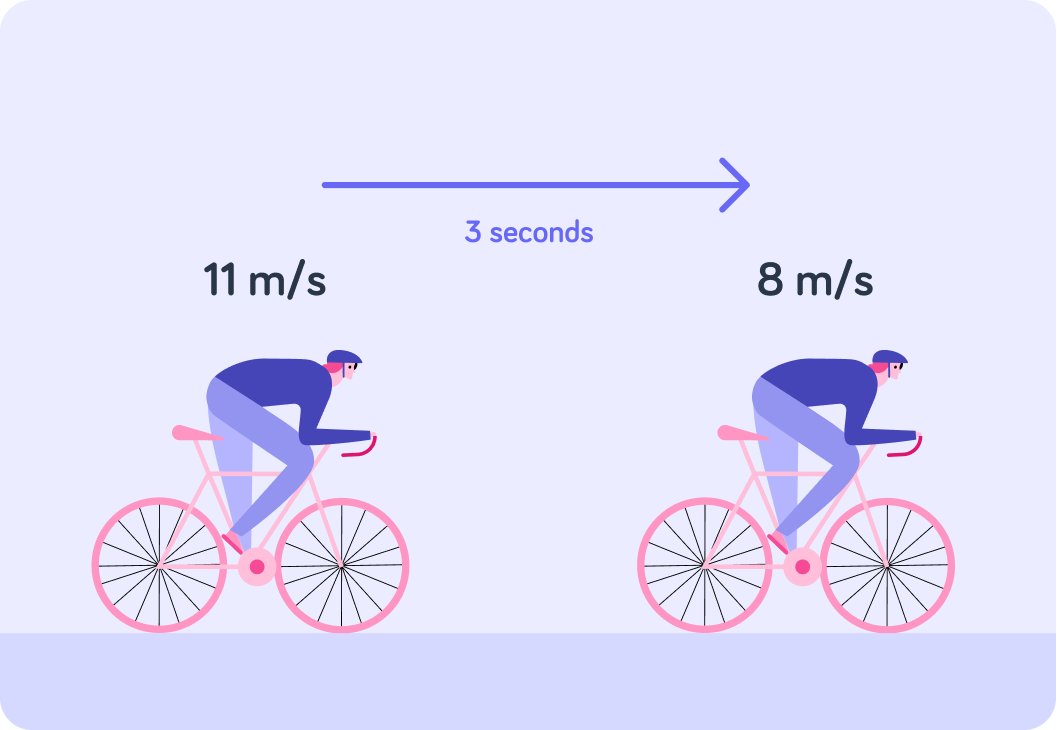
What is his final speed?


Is this cyclist speeding up or slowing down?


Use the formula acceleration=timefinal speed−initial speed as normal. What is the cyclist's acceleration?


So acceleration can be negative!
If an object is slowing down, it's still "accelerating", but the acceleration is negative.
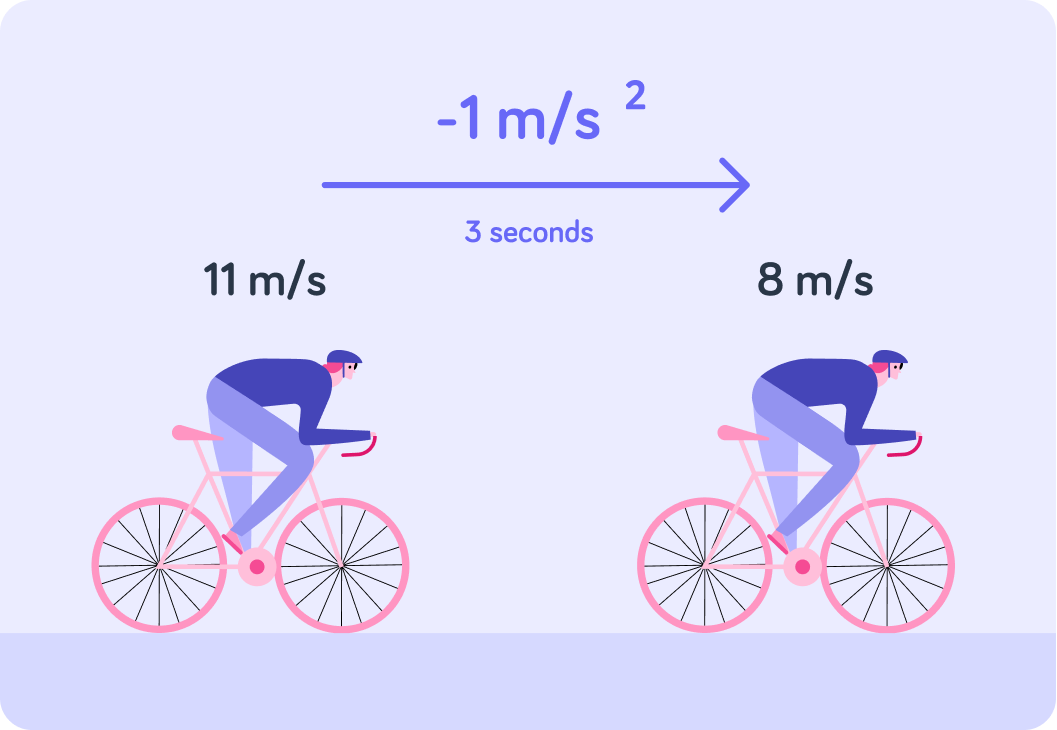
Summary!
You calculate acceleration like this
acceleration=timefinal speed−initial speed

This gives you the unit m/s2
You essentially say sm/s which is the same as s×sm or s2m
Acceleration is a change in metres per second per second.

If an object is slowing down it is still "acceleration"
It just means that acceleration will be negative because final speed−initial speed will give a negative value.

